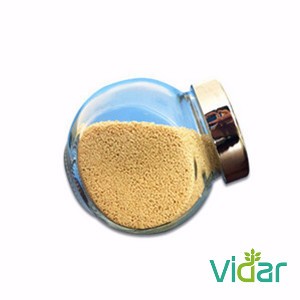

position:
Rwanda: Support small seed multiplication firms to ease access to improved planting materials, experts say
2021-07-08
There is need to promote small seed multiplication companies in the potato value chain to ease access to improved planting materials and also help reduce cost of seeds, potato breeding experts have said.
Manicad Gigi, programme leader for Sowing Diversity=Harvesting Security at Oxfam Novib, said small seed chain companies would be a good intervention for seed multiplication as that is cost-efficient and can ensure affordable prices and ease access to planting materials.
“This will help increase the availability of seeds to smallholder farmers and hence promote efforts to ensure food security,” she added.
Manicad also said the changing climate and diseases were affecting agriculture production, and called for resistant seeds in the fight against pests and diseases as well as weather vagaries. Gigi was speaking during a visit to RAB research station in Musanze that is involved in tissue culture for seed production, recently.
The expert was one of the 11 experts who attended the just-ended International Treaty on Plant Genetic Resources for Food and Agriculture conference in Kigali last week. They included breeders and researchers from different countries. The meeting discussed a range of issues, like how to conserve and sustainably use the available plant genetic resources for food and agriculture.
Sustainable seed multiplication required
In the effort to create a sustainable seed production chain, David Ellis, the head of genebank at International Potato Centre (CIP) in Lima, Peru, said farmers need to be trained on how to ‘sustain’ seeds they get without intervention from bodies like Rwanda Agricultural Board (RAB) and other agricultural research centres which give smallholder farmers free seed.
“This will empower smallholder farmers enabling them to add value to the seed…Maybe they will be able to buy the seed themselves at some time in the future.” Citing the orange-fleshed sweet potatoes, which farmers in Musanze District use to make mandazi, the expert added that it is also important for communities to benefit from value addition to some crops that they grow.
This, he explained, will give more options to a farmer on how to “earn a living hence eradicating poverty and hunger in developing countries like Rwanda”.
Why cost of seeds is high
According to Placide Rukundo, an agronomist at RAB, farmers buy improved potato seeds at Rwf100 per stem “because of high cost involved in seed production.” At the Musanze RAB research station, mini-tubers that are used to produce basic seed, which is sold to farmers, are obtained through two ways; using greenhouses and aeroponics. “These methods are costly. For example, to produce improved seed using aeroponics there is need to import chemicals. There is also a challenge of limited space for greenhouses all of which push up the cost of potato seed,” he added.
NEWS
NEWS
- Turkey aims top 5 in seed trade in world2021-07-08Chairman of Turkish Association of Seed Growers (TÜRKTOB) Kamil Yılmaz said that the sector exported seeds valued at 136 million U.
- Precision agriculture can do wonders for Indian farming2021-07-08The worrisome reality in India is that agriculture is facing a crisis. In village after village, farmers are looking at selling th.
- India Bt brinjal: Bangladesh's model not fit enough for adoption2021-07-08When India is considering commercialising Bt brinjal in India by first studying Bangladesh’s “successful” model, the neighbour cou
- India Andhra Pradesh's push for zero budget natural farming inspires others2021-07-08Use of chemical pesticides in India, including those that are banned in other countries, has been a matter of concern and a raging.
- Metominostrobin market current trends and future aspect analysis by 20272021-07-08Metominostrobin market current trends and future aspect analysis by 2027The global metominostrobin market is predicted to increase
PRODUCTS





